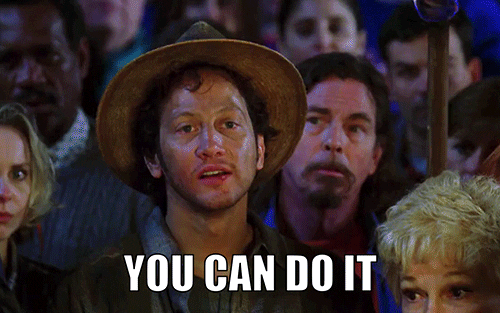Brought to you by permanent tsb
The house buying process can seem a bit overwhelming at times, but we'll help get you through it.
Once you start the house buying process, it's only natural that you'll want to get it all sorted as quickly as possible. It can be frustrating then when you have a long list of things you have to get through before you actually get the keys to your new place.
With a few helpful tips though, you'll be well on your way. You got this.

If you want to find out more about what's discussed below, check out permanent tsb's
First Time Buyers FAQs.
Step 1: Do your sums
The first step is to work out how much money you have and how much you’ll need. Look at all your savings and see how much you have in total.
Calculate the deposit
If you’re a first time buyer you’ll need a deposit of 10% of the asking price. If the price of the property is €300,000, you’ll need a €30,000 deposit. Bear in mind if you have received some of your deposit as a gift, you’ll still need to show your ability to make repayments, be this paying rent or saving.
Add on the additional expenses
As well as a deposit, there are also a large number of additional expenses you’ll need to consider, like stamp duty, solicitor’s fees, valuation and surveyor costs, mortgage protection, home insurance and property tax. All of these could add up to roughly €8,000 for a €300,000 house, which significantly increases the amount you will need to save.
They are not all payable at the same time, though, so that gives you some breathing space.
Here’s a breakdown of the extra costs (sourced from
bonkers.ie):
Stamp Duty
1% up to €1 million and
2% of the balance of the selling price over €1 million
(e.g. €300,000 home = €3,000 Stamp Duty)
€3,000+
House valuation
(Sourced from
bonkers.ie)
Between €150-€250 +VAT = €307.50
Surveyor
(Sourced from
bonkers.ie)
Roughly €300 +VAT = €369
Legal fees
(Sourced from
Money Guide Ireland)
Usually 1-2% of the purchase price or €1,500 - €3,000 +VAT
€3,705.87
Property Tax
(Sourced from
Revenue.ie)
Based on the value declared for the property and the rate that applies for the year that you buy.
Expect to pay €200-€500
Home Insurance
(Sourced from
bonkers.ie)
This can vary a lot, but expect to pay roughly €250-€350.
Mortgage Protection
(Sourced from
Bonkers.ie)
This will vary a lot, but it can sometimes be possible to get prices of roughly €100.
TOTAL: €8,332
Find out how much you can borrow
(Sourced from
Mortgages.ie)
If you’re a first time buyer you can generally borrow up to 3.5 times your gross income (or your combined income for joint borrowers) or up to 90% of the property price if you’re a first-time buyer or 80%, if you’re a second-time buyer. The amount you can borrow is based on your expenses, spending habits and lifestyle so it is at the discretion of the bank.
Step 2: Get mortgage approval in principle
The most important part of this term is “in principle”. This is not actual loan approval, just an indication from the bank that they would be willing to consider you for a mortgage up to a certain amount, as long as you meet certain criteria. It’s not a set in stone guarantee but it means that you can start house hunting!
Your official mortgage offer will be based on you supplying all of the documentation that the bank requires, like proof of ID, address and PPS number, proof of income, your bank statements for the past six months and 2-3 years of certified audited accounts, if you’re self-employed. You may be asked for more documentation as you move forward with your application but the above is a good overview to get you started.
Step 3: Hire a solicitor
You will need a solicitor to handle all the legal work involved in buying a property and transferring ownership from the seller to you. A good solicitor can help the process run smoothly, and they are representing your side if problems arise, so make sure to get recommendations from family and friends.
Get them involved as early as possible, as you will need them as soon as your offer is accepted. Some solicitors charge a flat fee for this, while others charge a percentage of the purchase price (1-2%). Legal fees can vary so it pays to shop around.
Step 4: Search for a home
Your Mortgage Approval in Principle generally lasts for 6-12 months. If you have not found a house within this time it expires and you have to reapply so ideally you should aim to find a home as quickly as possible (no pressure!).
Step 5: Make an offer
Once you’ve found a house you love, it’s time to put in an offer. Probably the most nerve-wracking phone call or email of your life! If your offer is accepted you’ll need to pay a booking deposit to the estate agent, which is usually a percentage of the offer. Your booking deposit is fully refundable until the contracts are signed.
Check out our ‘Home Buyers HQ’ from saving to sale agreed, everything you need to know. If you're looking to start your own home buying journey you can book an appointment with the permanent tsb team today.
Lending criteria, terms and conditions apply. Security and Insurance required. permanent tsb p.l.c is regulated by the Central Bank of Ireland.
Brought to you by permanent tsb 


 If you want to find out more about what's discussed below, check out permanent tsb's First Time Buyers FAQs.
If you want to find out more about what's discussed below, check out permanent tsb's First Time Buyers FAQs.
